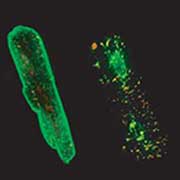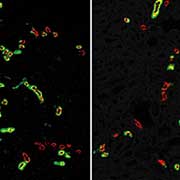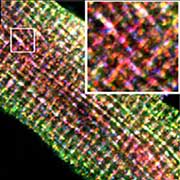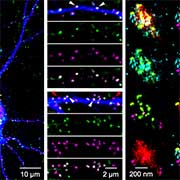Research
 Cardiovascular, Renal and Metabolic Physiology
Cardiovascular, Renal and Metabolic Physiology
Faculty in the Department of Physiology are internationally recognized for their research into the cellular and molecular aspects of cardiovascular and kidney function. We employ an interdisciplinary approach, using molecular, cell biological, electrophysiological, transgenic, functional genomic and optical techniques to understand how the cardiovascular-renal system works.
 Calcium Signaling
Calcium Signaling
Faculty in the Department of Physiology study the dynamic changes in calcium signaling in neurons, cardiovascular cells, skeletal muscle, immune cells, renal cells, mitochondria, and much more. We use a wide array of complementary and cutting-edge techniques to advance our understanding of the physiology of calcium signaling in health and disease.
 Membrane Biology Research
Membrane Biology Research
Faculty in the Department of Physiology are internationally recognized for their research into the cellular and molecular aspects of membrane physiology. Understanding the function of ion channels, transporters and pumps, as well as structural proteins and cell adhesion molecules, lends insight into a variety of physiological processes.
 Neuroscience
Neuroscience
Our Neuroscientists bring a strong interdisciplinary scientific approach to studying the nervous system. Our students, post-docs and faculty use molecular, cell biological, anatomical, electrophysiological, behavioral, and optical techniques to understand how the brain develops, how neurons communicate, and how brain cells maintain ionic homeostasis.
